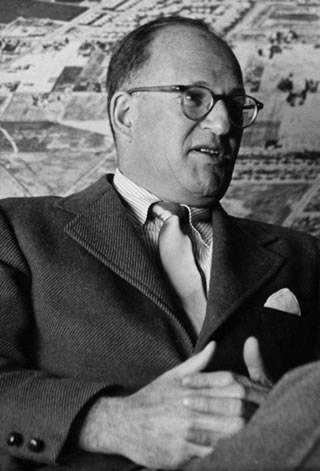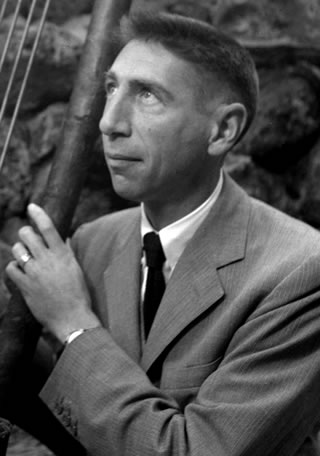Jim San Jule: Tireless Crusader - Page 3
 |
 |
 |
|
|
Steve San Jule said his father and mother also spent time in Mexico circa 1936 studying communal living.
It’s hard to confirm many of Jim San Jule’s tales. “He romanticized things in his past,” says Dan Solomon, who heard many stories. “There was a little bit of Baron Munchausen in them. I don’t think they were untrue.”
Born, like Eichler, in New York City, Jim began riding the rails after the Depression destroyed his father’s Oklahoma oil business.
Sleeping “behind a pile of construction material in a subway kiosk,” as he described in the 1997 book and movie Riding the Rails, didn’t come easy to this “ordinary rich kid,” who had won acceptance to Amherst College and whose father was once a Buick executive.
San Jule’s tales of hoboing do not glorify the experience. There was little camaraderie and much misery among his fellows on the road. He did write, however, about the black man who prevented a thief from making off with Jim’s clothes. “A black man who came to my rescue,” he said. “It was a revelation to me.”
Arriving in the Bay Area in 1932, he studied geology at UC Berkeley, Yvonne Koshland says.
Soon, though, he was spending more time on the San Francisco waterfront, working as a longshoreman and organizing workers. “He was not so interested in geology,” Koshland says. “And with everything going on elsewhere, he wanted to get involved with it.” San Jule never graduated.
It was at Cal he met his first wife, Miriam.
In 1934, starting on the docks and spreading to industries throughout the city, the San Francisco General Strike shut down the waterfront and resulted in Bloody Thursday, when several strikers were shot and two died.
San Jule talked about the strike for years. “He was kind of Harry Bridges’ right-hand man and organizer,” says Pete, referring to the legendary labor leader.
“He loved to say how gory and serious those strikes were,” says Teresa Rea, a land use planner who became a friend in 1989.
San Jule said he edited and wrote a strike newsletter, and claimed he helped found the International Longshoreman and Warehouseman’s Union, along with Bridges and the African-American labor activist Revels Cayton in 1937.
Standard historical accounts don’t mention San Jule; the Waterfront Worker, the labor activist paper, is online, but its writers remained incognito to avoid being attacked by thugs.
It’s clear, however, that San Jule was closely involved with union activity. He remained friends with Bridges and Cayton for decades, involving them in housing ventures. From 1945 to 1951, San Jule stayed involved with unions, working with activist-broadcaster Sidney Roger.
“Jim managed my radio program for the unions from 1945 to 1951,” Roger told an oral historian, “after which things went to pieces, when Bridges went to jail and I lost my spot on radio and so forth.”
But nothing about San Jule’s labor tales compare with his tales about the World War II, often told while in a convivial mood. They involved his serving “off the coast of China” with the OSS (Office of Special Services, the predecessor of the CIA).
He did indeed serve off the coast of China, Koshland says—about 6,000 miles off, in San Francisco, where he worked for the federal Office of War Information, not the OSS. The job involved communications with the Far East, she says. In a timeline San Jule prepared of his life, he said his work involved “daily contact with China group headed by Mao Tse-Tung and Chou En Lai.”
Pete San Jule, born in 1941, says the family spent the war years in Marin City, then in a small home in the Marin County neighborhood of Sleepy Hollow. Jim worked at Marinship, the powerhouse shipyard that produced cargo ships, and did some organizing there too, he told friends. He quit Marinship after injuring his hand, Koshland says.
After the war San Jule formed a public relations firm, San Jule and Stofle, with a friend from Cal. They represented unions and worked on statewide campaigns.




